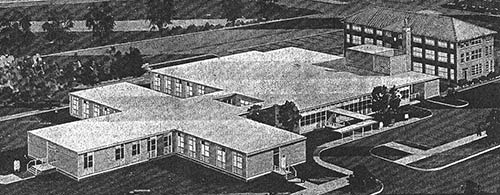Riverside General Hospital (1955-1980, Section 9)
In 1957 Houston Negro Hospital began an application for Hill-Burton funds to update the facilities. In 1961, it received a Hill-Burton grant, which, combined with gifts of $1,235,000, helped construct a new wing adding 26,000 feet of space.The hospital also added a clinic adjacent to the hospital. By adding new staff and equipment and expanding its programs, the newly renamed Riverside General Hospital planned to take advantage of new developments in the field of medicine. Dr. E. B. Perry, who came to Houston after medical school at Howard University and his residency at Chicago’s Cook County Hospital, was instrumental in applying for the Hill-Burton grant, which funded the renovation which resulted in the newly renamed Riverside General Hospital. Given the constituencies that this facility had long served, physicians at Riverside General Hospital anticipated great benefits with the beginning of Medicare and Medicaid in 1965.
In 1972, a second Hill-Burton grant and money from the Model Cities Program enabled Riverside General Hospital to develop a drug abuse and alcoholism treatment center and a hypertension program. The Model Cities Program was part of President Johnson’s Great Society and War on Poverty that initially emphasized citizen participation in planning; the program ended in 1974. In 1973, Riverside received a grant from the Houston Endowment for $50,000 to provide further training facilities.


